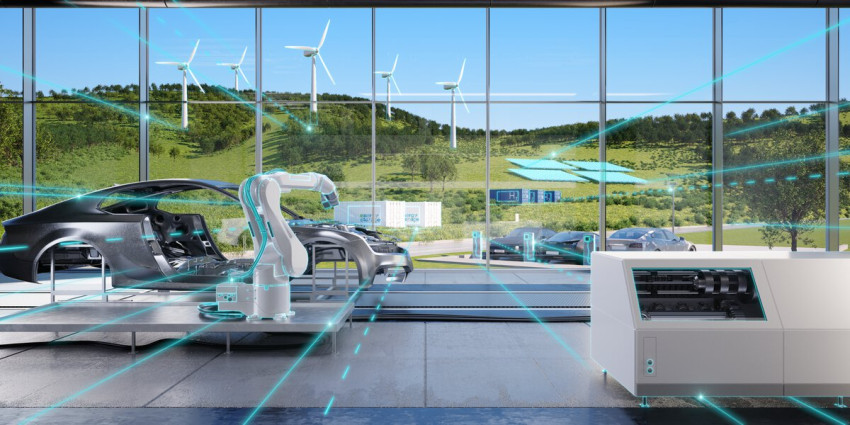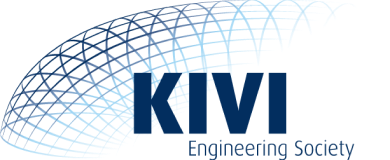
E Lunch Webinar: DC power grids in industry will solve grid congestion?
Language webinar will be in English
Rewatch E Lunch Webinar: DC power grids in industry will solve grid congestion?
Direct current (DC) – the industrial energy system of the future?
In today's world, most end devices are already powered by direct current (DC). Both charging stations and electric drives in industrial environments work with direct current generated by alternating current.
That's why several companies working on the DC-INDUSTRIES project are researching an integrated, DC-based smart grid. Employees in mechanical engineering at Phoenix Contact.
The idea is that the direct current generated by renewable energy sources directly supplies the loads in the grid, such as machinery, motors or conveyors, with electricity without conversion losses.
Direct current (DC) – the industrial energy system of the future? In today's world, most end devices are already powered by direct current (DC). Both charging stations and electric drives in industrial environments work with direct current generated by alternating current.
That's why several companies working on the DC-INDUSTRIES project are researching an integrated, DC-based smart grid. The idea is that the direct current generated by renewable energy sources directly supplies the loads in the grid, such as machinery, motors or conveyors, with electricity without conversion losses.
Advantages of a DC power grid
- Increased energy efficiency through energy recovery, the conversion-free use of renewable energy, and energy storage
- Resource optimization through up to 55% less copper consumption, reduced equipment costs, and smaller footprints
- Avoidance of production downtime due to failures in the supply network
- Basis for the intelligent control of energy flows
Confidence in DC power grids
Phoenix Contact is a competent partner for the use of direct current networks in industry. In view of the necessary energy revolution in industrial production and the associated maximum use of renewable energy, the working group has set itself the goal of supplying production plants with direct current in a safe and robust manner.
Phoenix Contact is involved in national and international task forces and conducts intensive research into the use of industrial DC grids in the field of factory automation, with an emphasis on future-proof electrical installations.
From theory to practice
Employees of Phoenix contact planning a building with a DC power grid. However, Phoenix Contact goes even further, because research alone is not enough for them. As an innovation leader and expert in electrical installation, they want to take the first step, be present, gain experience and solve problems.
That is why Phoenix Contact are currently building a new building with our own direct current grid on our campus. The electricity generated there will also directly power parts of the company's own mechanical engineering department and other sites via photovoltaic systems. Of course, Phoenix Contact will rely on their own products and develop further DC-compatible components as part of the project.
Speaker

Tobias Lüke Technical Project & Technology Management at Phoenix Contact, would like to explain the role DC grids play in the energy systems of industry.
Bio
Since 2016, Tobias Lüke, an accomplished professional, embarked on an academic journey at the University of Paderborn, earning a master’s degree in electrical engineering. From 2016 to 2017, Tobias served as a Research Assistant at the University, specializing in Sensor Technology. Subsequently, Tobias contributed to the Fraunhofer Institute for Electronic Nanosystems ENAS in Paderborn from 2017 to 2018. Transitioning into industry, Tobias assumed the role of Product Manager at Phoenix Contact BU Power Supplies GmbH, specializing in DC/DC power solutions from 2018 to 2023. Since 2023, Tobias has excelled as the Technical Project Leader at Phoenix Contact BU Power Supplies GmbH.
2016 Universität Paderborn - Master - Studiengang: Elektrotechnik
2016 - 2017 Wissenschaftlicher Mitarbeiter, Universität Paderborn Fachgebiet Sensorik
2017 – 2018 Wissenschaftlicher Mitarbeiter, Fraunhofer Institut für Elektronische Nanosysteme ENAS, Abteilung Advanced System Engineering ASE, Paderborn
2018 – 2023 Produktmanager, Phoenix Contact BU Power Supplies GmbH im Bereich DC/DC Stromversorgungen
Seit 2023 Technischer Projektleiter, Phoenix Contact BU Power Supplies GmbH
Links
- Rewatch E Lunch Webinar: DC power grids in industry will solve grid congestion?
